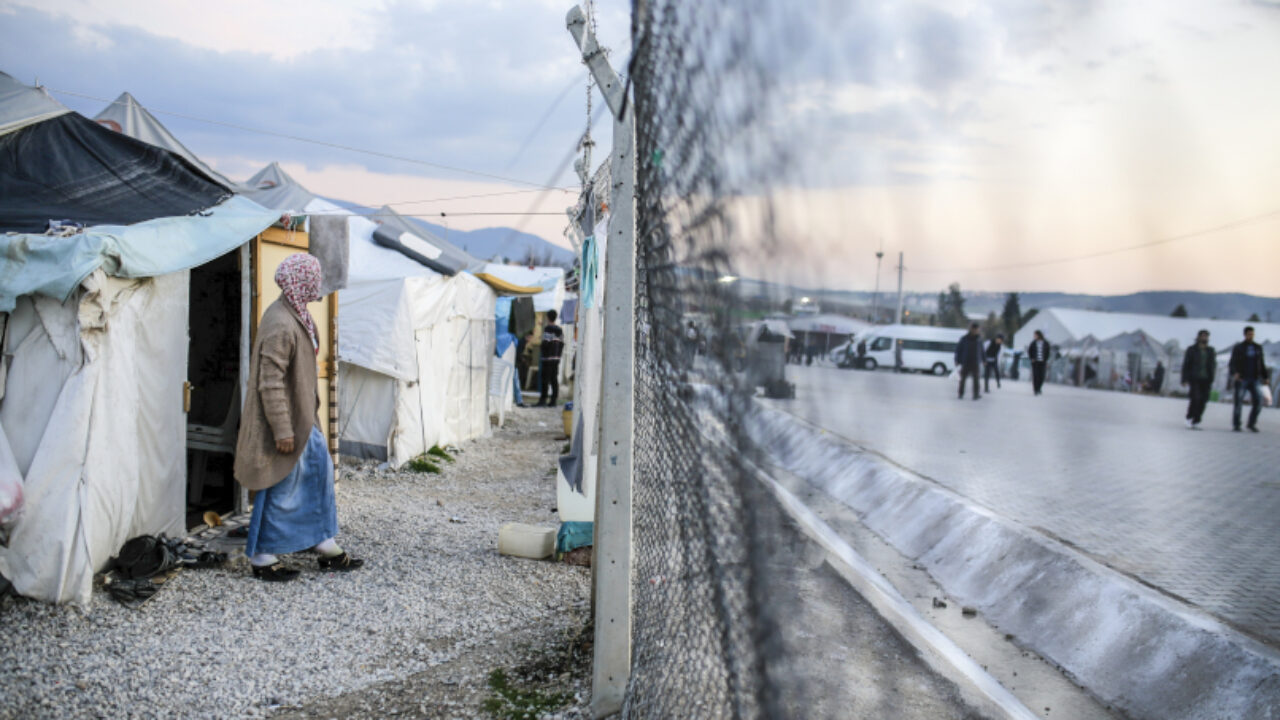How Germany could break the migration deadlock
The German Council presidency should work within a coalition of the willing to find a solution on migration.
In late September, the European Commission unveiled its long-awaited New Pact on Migration and Asylum, the organisation’s eighth proposal for reforming the EU asylum system in five years. This came against the backdrop of the fires that destroyed the Moria refugee camp on the Greek island of Lesbos – a “wake-up call” for the European Union, according to Commission Vice-President Margaritis Schinas. With new urgency, the Commission presented the proposal as striking the “right balance between solidarity and responsibility”. The German Council presidency, too, set migration high on its agenda, with the goal of ending the deadlock the EU has experienced since 2015. But, despite Germany’s ambition to finally agree on a “European solution”, the new pact seems unlikely to bear fruit.
Europeans are aware of the matter’s urgency. “Immigration and asylum policy” ranks in second place among the 20 policy areas covered by the 2020 edition of the European Council on Foreign Relations’ EU Coalition Explorer. Fourteen member states even place it in their top three. And these results are in line with the EU Coalition Explorer’s findings from 2018.
Yet the EU27 remain divided into two broad groups. One is a “coalition of the willing” consisting of Germany and France – the EU’s most influential powers – as well as of member states on the bloc’s southern border. The second is the Visegrád group, comprising the Czech Republic, Hungary, Poland, and Slovakia. While the first group seeks a common European solution, the second sees no need for reform.
The members of the Visegrád group largely reject EU solutions to migration challenges, preferring to address the issue at the national level. They only cooperate – if cooperation is necessary – within their group of four. Visegrád states do not want to engage in negotiations over migration. They are either convinced that the status quo is sufficient (the Czech Republic and Slovakia) or want to want to avoid the issue altogether (Hungary and Poland).
The coalition of the willing, in contrast, emphasises the need for reform, the protection of refugees’ human rights, and improved cooperation on search and rescue operations in the Mediterranean. As the graphic above shows, the coalition aims to find a permanent EU solution as soon as possible. This does not mean that there is a consensus within the coalition on the details of such a solution. The considerable divergence between coalition members – especially on the first-entry criteria of the current system – will continue to impede negotiations. Nevertheless, they have found some common ground.
Europeans’ handling of immigration puts their credibility at stake like few other issues.
Europeans’ handling of immigration puts their credibility at stake like few other issues. But, after months of preoccupation with the covid-19 pandemic, the impending economic recession, and rising geopolitical tensions, the Moria fires drew public attention back to Europe’s moral failure on migration. Nonetheless, the German Council presidency is unlikely to make a breakthrough if it continues to insist on finding a consensus between all member states.
Instead of hitting a brick wall in search of a comprehensive and definitive solution, the Germans would be well-advised to opt for incrementalism. Covid-19 has only made the dire conditions in Greek refugee camps worse. The port explosion in Beirut in early August, and the resulting food shortage in Lebanon, might force Syrians who had found refuge in the country to flee to Europe. Therefore, even if all EU member states agree on some parts of the German Council presidency’s or the Commission’s reform agendas, the negotiations are likely to stall on the most critical issue: distribution.
To make some progress on migration and improve refugees’ situation, the German Council presidency should work towards a solution within the coalition of the willing. This would be a bitter pill to swallow. The Germans should build on minor, often overlooked, achievements such as the Commission’s March initiative to relocate 1,600 unaccompanied refugee children from the Greek islands. Even negotiations within the coalition will be tough and time-consuming – but one could gradually expand on partial agreements to create a workable allocation mechanism.
This would only be a short-term solution to avert total failure during the remaining three months of the German Council presidency. In the long run, it would fall short of the EU’s key principles of cooperation, solidarity, and inclusion. A permanent allocation mechanism that only involved some member states would be unfair and would fragment the EU even further.
Germany will end its Council presidency on 1 January 2021, but will remain part of the trio presidency for another twelve months. As such, Germany should closely coordinate with Portugal and Slovenia to implement the migration reforms laid out in their current working programme. A true “together for Europe” solution will require the cooperation of Visegrád countries. The New Pact on Migration and Asylum provides a starting point for this, calling for a flexible contribution from all 27 member states. However, to ensure the humane treatment of refugees and protect its credibility, the EU will have to move from flexible to mandatory contributions as soon as possible.
Clara Sophie Cramer is a research intern with ECFR’s Rethink: Europe initiative and a graduate student at the Walsh School of Foreign Service at Georgetown University.
The European Council on Foreign Relations does not take collective positions. ECFR publications only represent the views of their individual authors.



